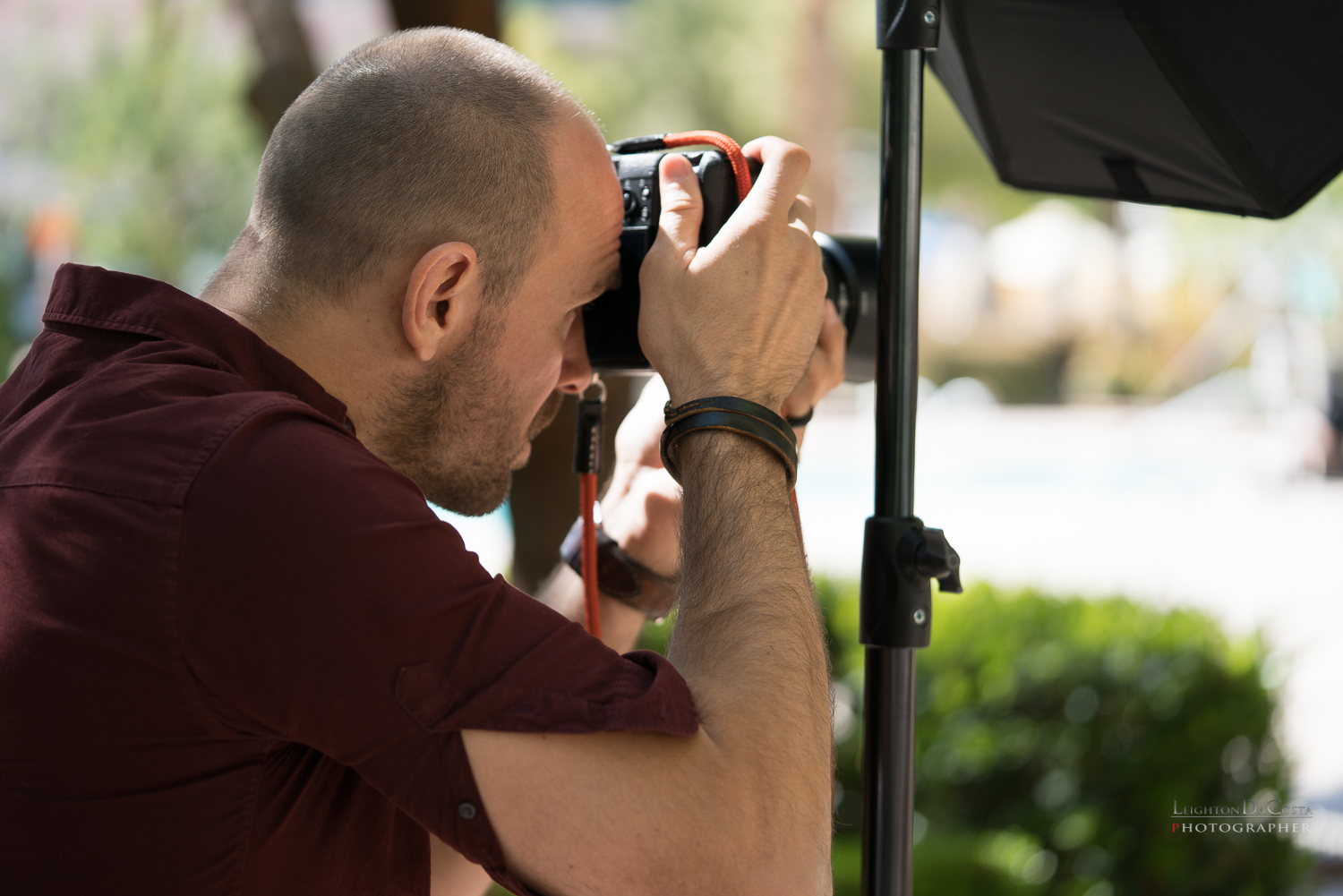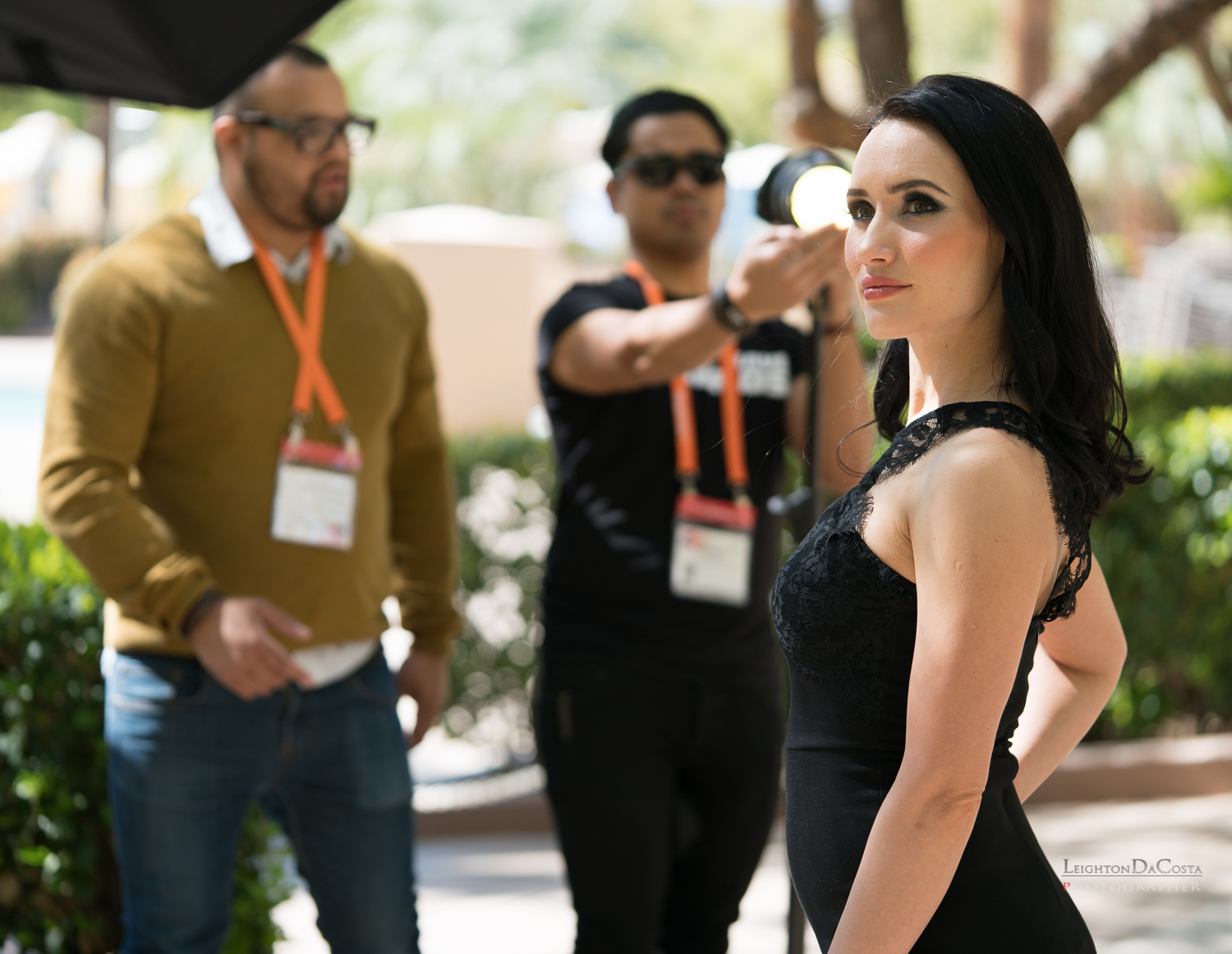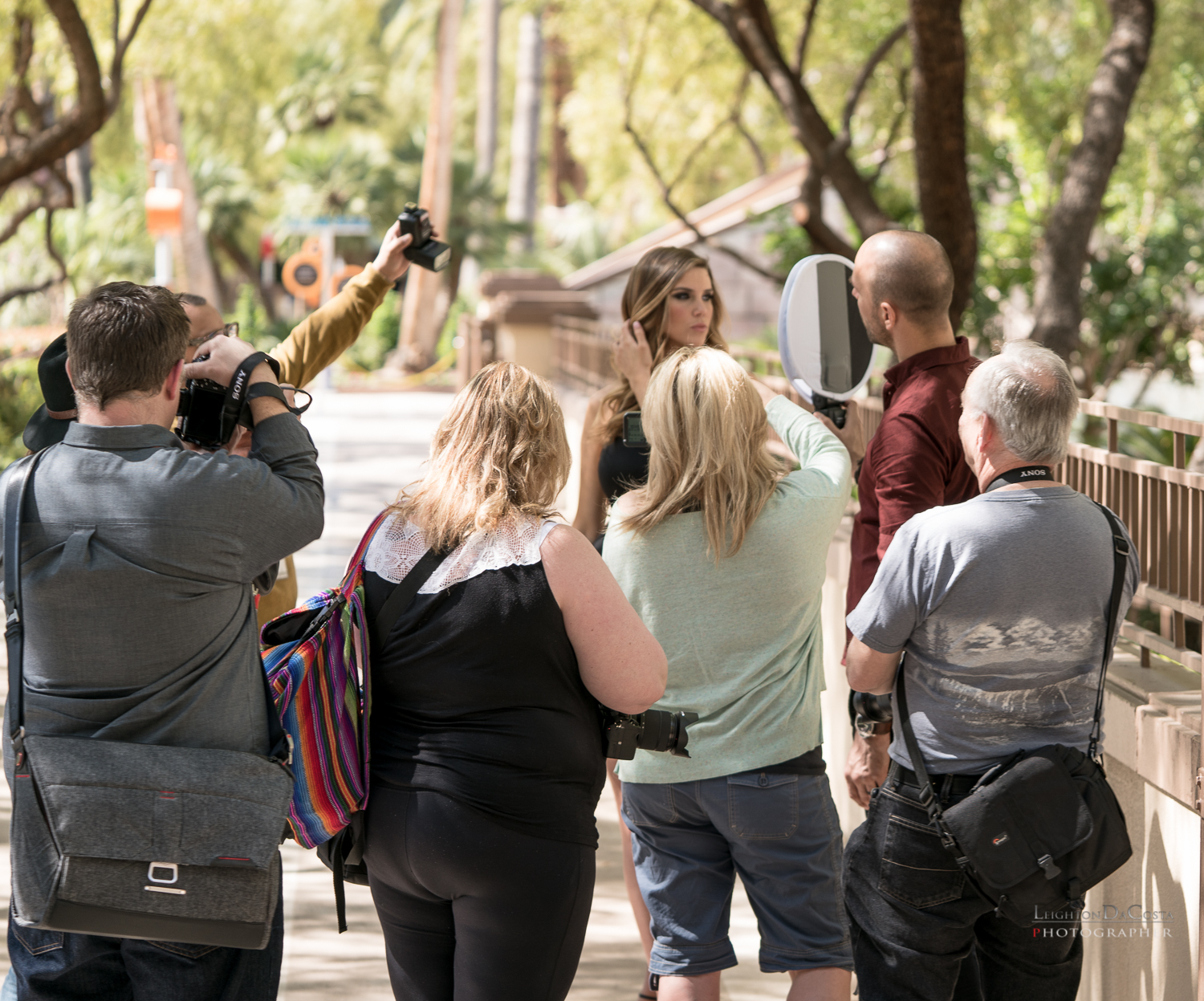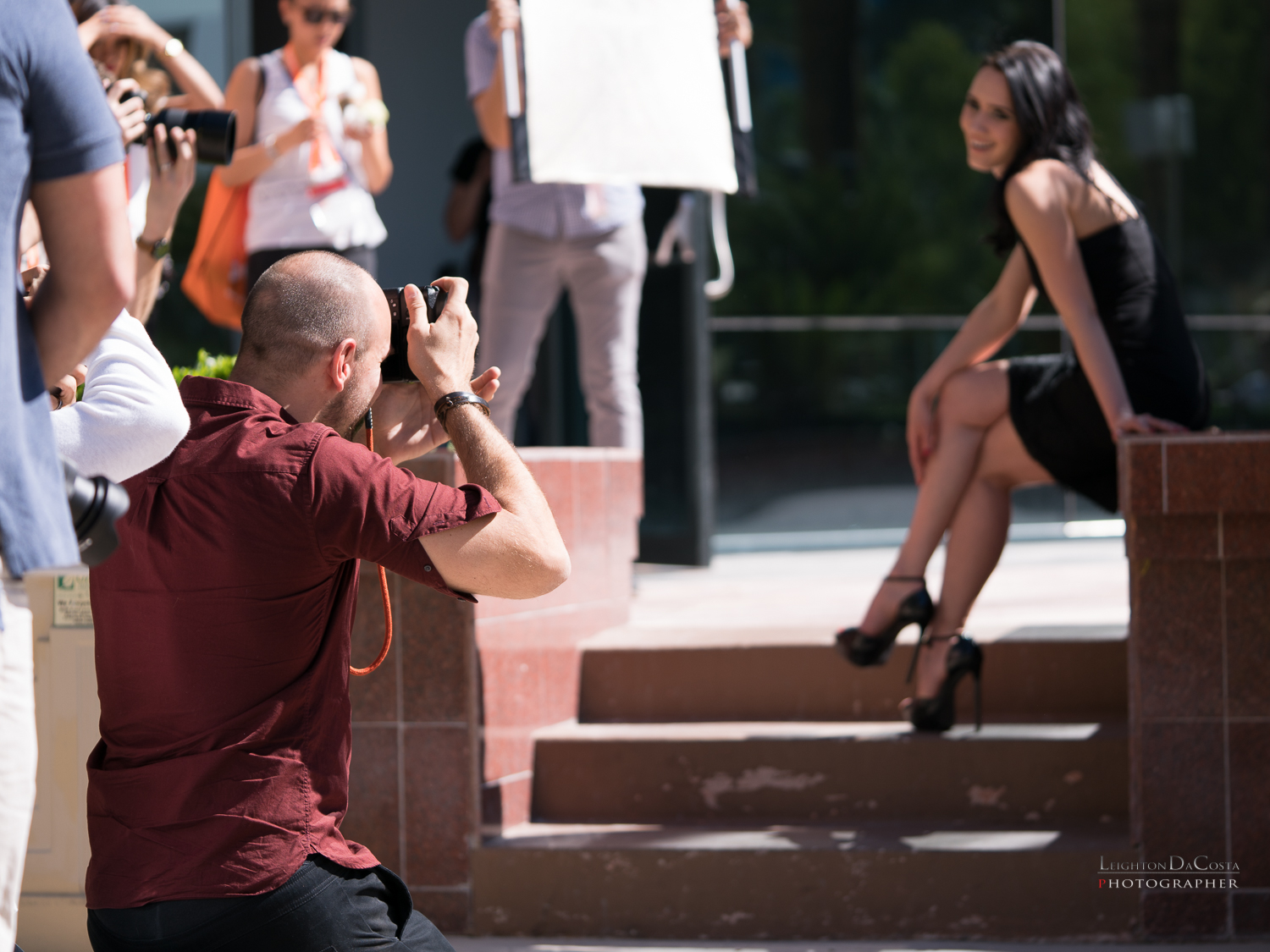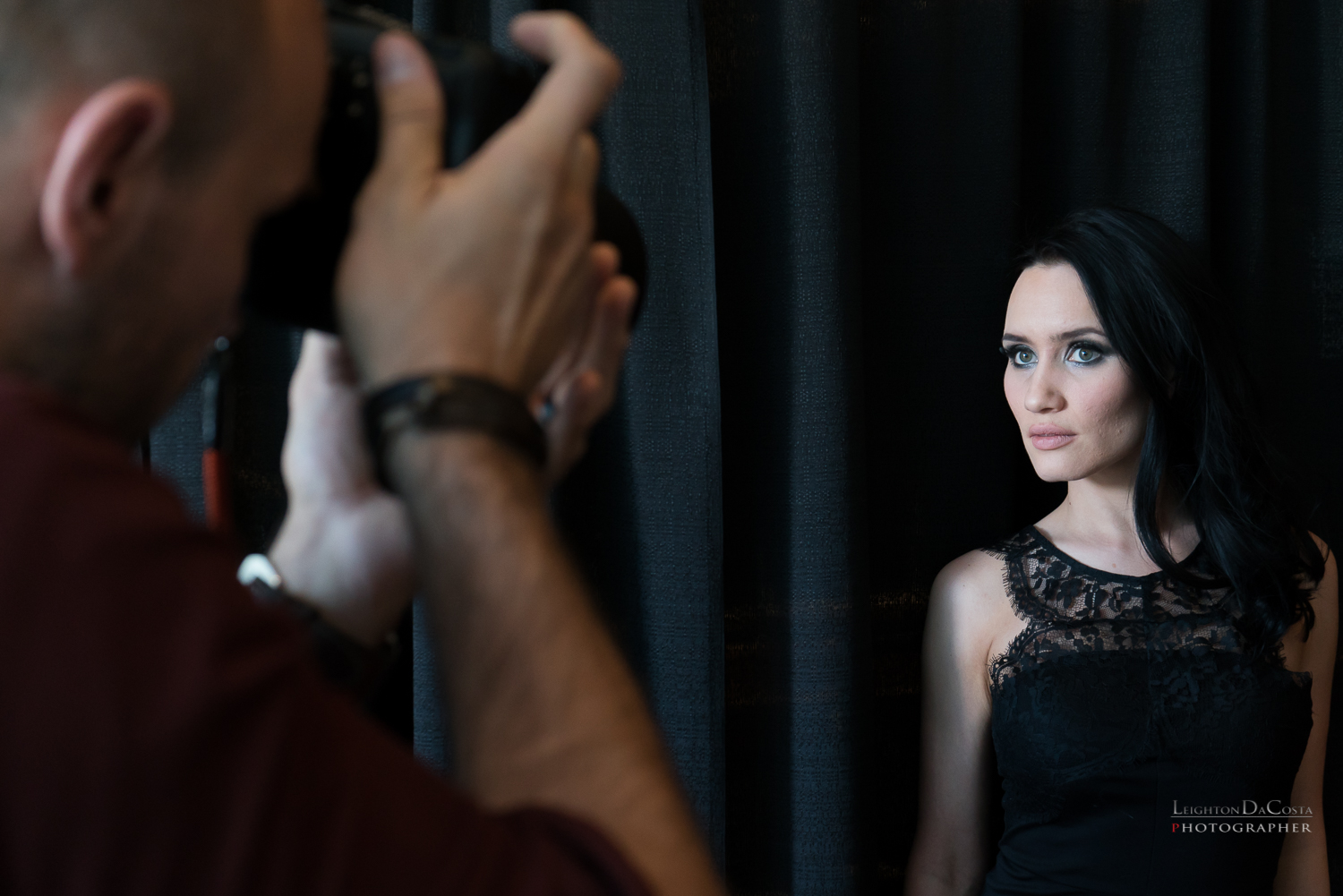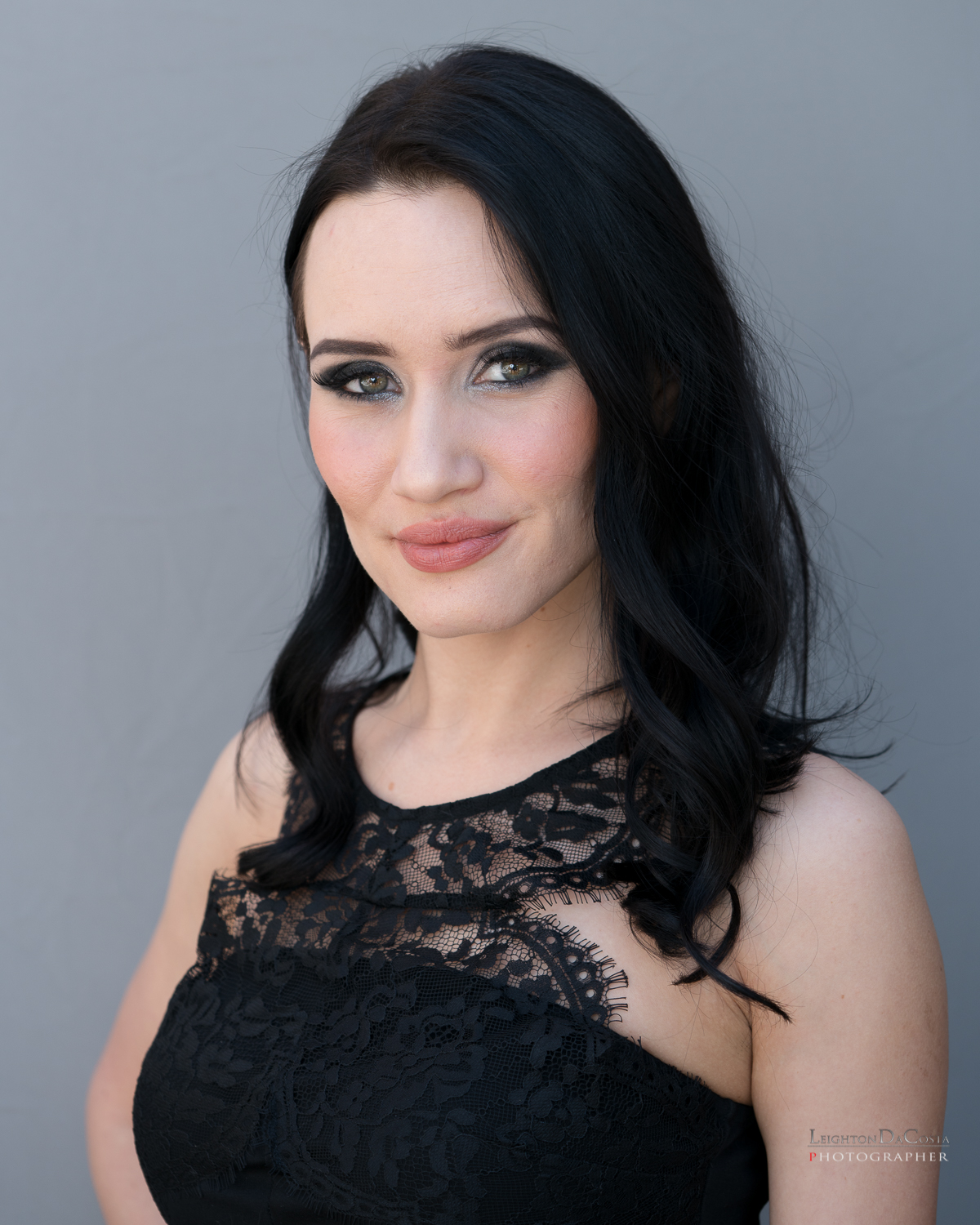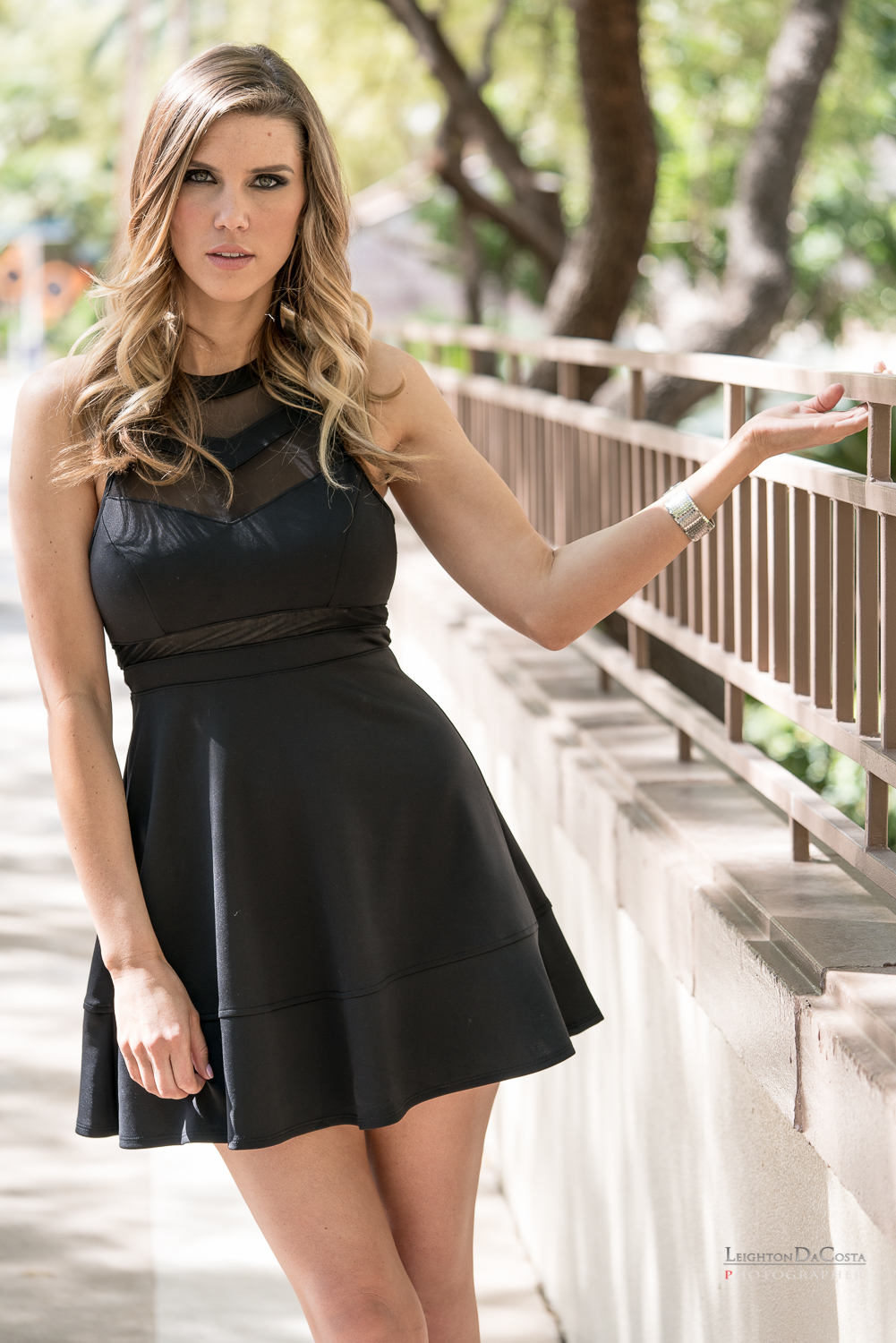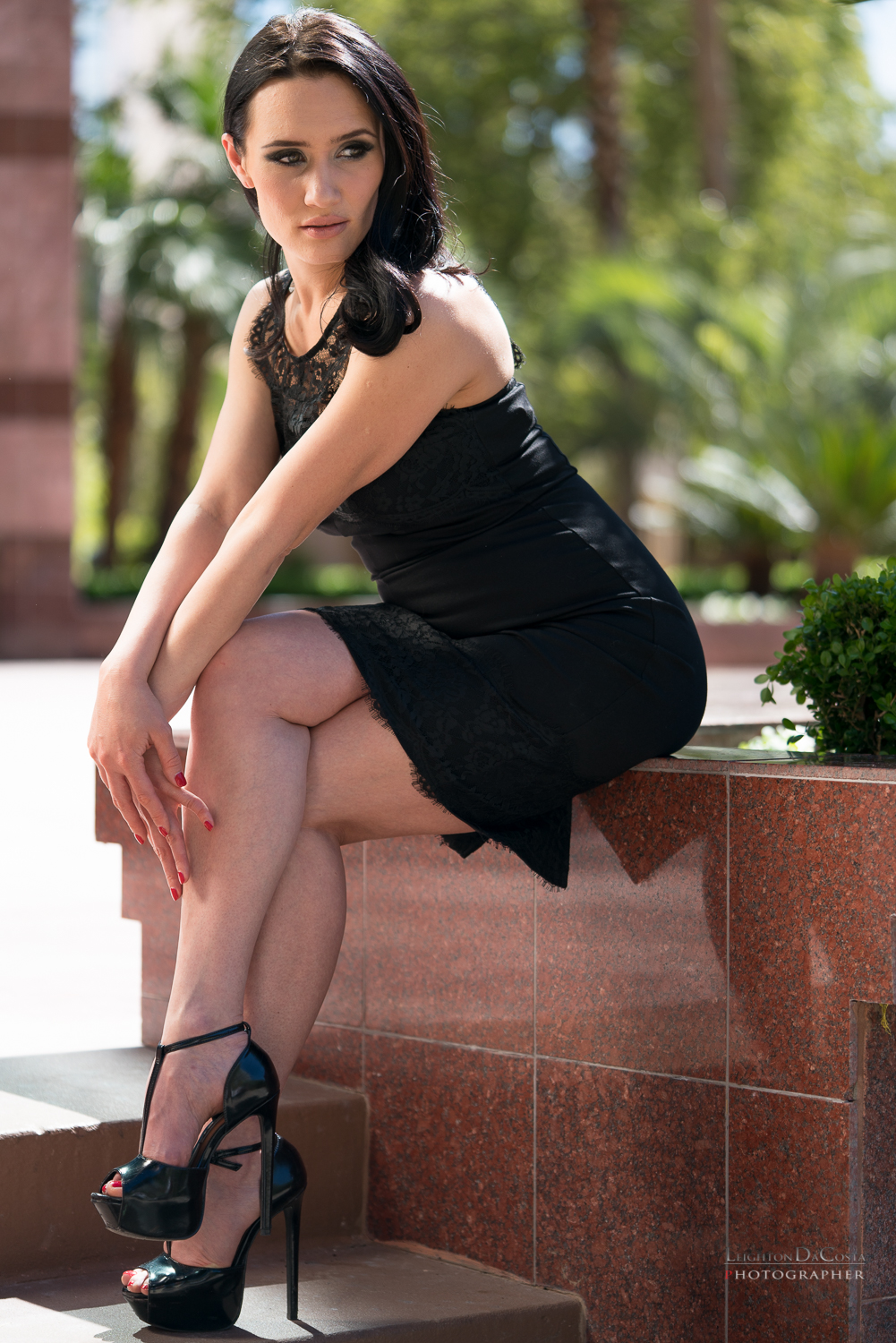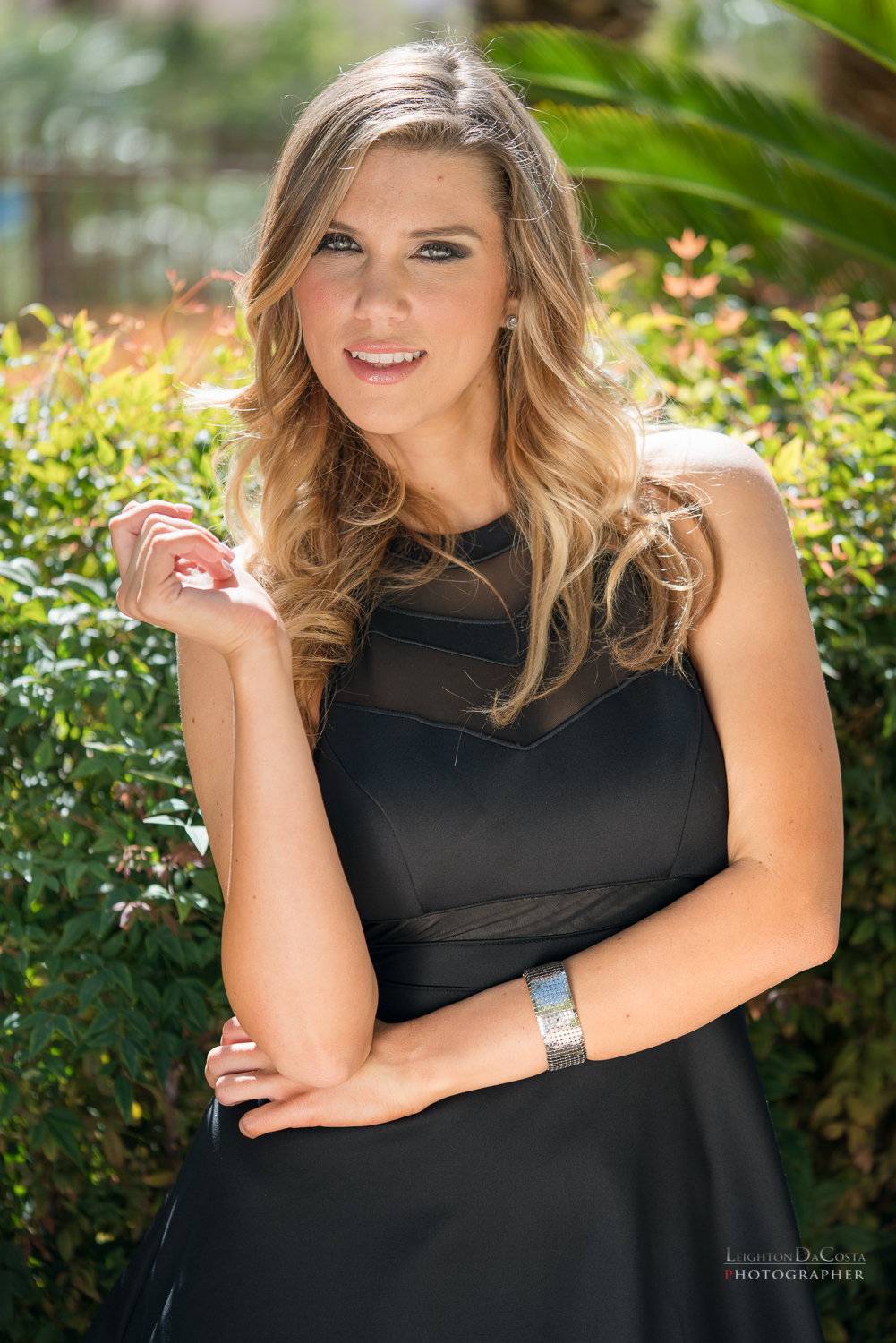On the closing days of the Wedding Portrait Photographers International (WPPI) Trade Show, I was fortunate enough to attend a 6 hour Master Class with international wedding photographer Mike Colon. Mike is a photographer based out of Newport Beach California, who's work has graced many international magazines, clientele ranges from Usher to Mel Gibson, and extracurricular activities include Brazilian Jiu Jitsu. With a list of accolades that would tower taller than his 6' 2" frame, he is probably one of the most humble photographers I have met. I was really looking forward to his class. I won't go too much into the details of what was taught, but I will highlight a few things.
International Wedding Photographer Mike Colon doing what he does best, creating beautiful images.
Sponsored by Sony, the class was about being able to dial in your mirrorless camera for weddings. I am currently a Nikon shooter, but I have always had interest in mirrorless cameras, because of the minimal footprint of gear compared to the regular DSLRs from Canon and Nikon.
Going into the class, I already had reservations about mirrorless systems mainly because of the Electronic Viewfinder (EVF) lag and the huge battery drain. I felt that Mike would offer a unique perspective, because while now a Sony Artisan, he was once a Nikon shooter as well. I can understand now, why he made "the switch."
The first couple of hours of the class were classroom lecture to go over the menus and custom buttons on the Sony A7 series, which is Sony's professional line of mirrorless cameras. A camera that is feature rich, but button sparse.
I HATE MENUS, and the Sony has LOTS of them. I did enjoy the layout of the menus though. Mike walked us through each menu, and showed us what he did on wedding day to make it easier for him. Those who have photographed weddings, know that there is so much going on the day of the wedding, that if you are wasting time looking at menus, you might miss something important. After the lecture portion it was time to move on to the practical part of the class.
Mike Colon holds a speedlight that has been modified, while another participant captures the image.
We went to the Sony PRO lounge where, we were provided with kits containing the new Sony A7RII Mirrorless camera. I was fortunate to have a 90mm f/2.8 G lens in my kit as well. (All images on this post are shot with the A7RII and are only adjusted for crop and color balance.) the other lens in the kit was the 55mm.
The practical portion reminded me of being in school where as soon as you went into the lab you forgot everything in the lecture. I was ready to throw the A7RII in the MGM Grand pool, but a few moments more the camera started to actually make sense. One of the cool things that Mike showed us was the focus tracking that the A7RII provides. I will say it blew my mind. While there were some missteps, it is a pretty reliable feature, able to track the models' movements with ease.
We had two beautiful models, although, I wish that we would have had a model "couple" to simulate more along the moments of a wedding. Nonetheless it was great to have such beautiful models. Thank you to 24 Seven Productions who provided the models and to Sony.
I see mirrorless in my future, and this class helped me move closer to that point. I loved the knowledge and hands on training that I got from the class. I learned a lot and would recommend to any photographer out there who attends WPPI in the future to take advantage of booking at least one Master Class or Plus Class. You wont regret it.
“One private lesson from an accomplished instructor is worth at least 10 group lessons.”
